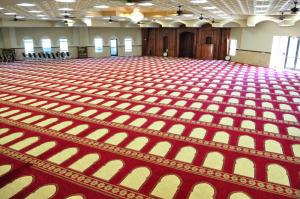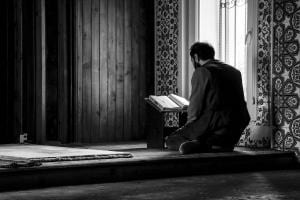
In recent times we’ve seen unfortunate stories of major religious figures in our community accused of heinous crimes of spiritual, sexual, mental and psychological abuse. This isn’t to say this is something we should think our community is immune to, but it’s to say that we too as a community have inner demons we need to cleanse. As someone who is a community builder and organizational strategist I observe these phenomena through the lens of community and organizational efficiency. This is not to take anything away from the victims or their experiences, but the question I pose is: How, as a community did we fail these victims? Is there more we could have done? How can we prevent this from happening again?
Far too often our community has a knee-jerk reaction and reactionary approach to community challenges or tragedies. What was refreshing to see in recent times was the rise of FACE (Facing Abuse in Community Environments), a non-profit organization dedicated to assisting victims in finding support and raising awareness about individuals who are perpetrators of spiritual, sexual, mental and psychological abuse by those in leadership positions in our community. Some in our community may second-guess the intention of organizations similar to FACE, but organizations like FACE are critical to our community especially with the lack of accountability, transparency and professionalism of our masjid leadership. As someone who’s worked within the Muslim non-profit field for almost a decade including working at a national level with some of the largest Muslim American non-profit organizations and also a local level with non-profits I’ve learned and observed that many of those in those structures lack professionalism and a basic understanding of organizational management. In many ways the organizations that seek to help the community need help themselves to become efficient, professional and sustainable.
Now mentioning FACE isn’t me endorsing an anti-imam or community sentiment or ask for the community to begin mistrusting all imams or community leaders, but it’s to point out a failure on the part of our masjid and non-profit leadership. If they had internal structures of accountability and professionalism organizations like FACE wouldn’t need to exist. The existence of FACE shows a major failure of our masjid and non-profit leadership of holding themselves and their staff accountable. For far too long have our non-profits at a national and local level been run unprofessionally, with little to no-accountability, and transparency.
Now when it comes to justice I truly feel that we should not approach any allegations with a pitchfork and torch mob mentality. Crimes and allegations like rape, spiritual, mental and psychological abuse are to be taken extremely seriously. All facts, evidence and information need to be
As someone who is not someone to complain and simply point out a problem I intend to offer a couple of solutions to prevent leadership from abusing their positions of power and prevent community members from becoming victims of this abuse of power. This is an extremely important topic to address and could potentially turn Muslims away from the masjid, Islam and Allah altogether. As it is we have weak masjids and not addressing this would cause a mistrust of imams, community leader, the masjid, and shake some people’s faith in Islam and Allah altogether. This isn’t to be alarmist, but this is a possibility for our community and one that we must work to prevent.
Here are a couple of ideas and concepts we need to understand to address this issue:
- Imams and Community Leaders Are Not Infallible
We should never make the mistake of putting imams or community leaders on pedestals of infallibility. It doesn’t matter how long one’s beard is, how righteous someone looks, or how many followers they have on social media—it means nothing—we are all human—we make mistakes, sin and have the same capacity to commit evil and do good.
We must ingrain this in our community and talk to our children and families about not making the mistake of putting anyone on a pedestal too high or praise someone too much. It’s ok to appreciate an imam, scholar or community leader, but never fall into the trap of idolizing them.
- Community: Don’t Dismiss Abuse Allegations & Victims
If we silence victims and side with the imams or community leaders who are accused due to their position or their level of righteousness we essentially perpetuate an environment of injustice. As we remember in the story of the Prophet Dawud (David, peace be upon him) was tested when two angels disguised as men approached him to seek justice and the Prophet Dawud was quick to rush to judgment without hearing both sides of the case. In the Quran, Allah says:
[We said], “O Daud, indeed We have made you a successor upon the earth, so judge between the people in truth and do not follow [your own] desire, as it will lead you astray from the way of Allah.” Indeed, those who go astray from the way of Allah will have a severe punishment for having forgotten the Day of Account. (Al Qur’an 38:26).
- Non-Profits: Create Sexual Harassment Policies (& Employee Handbooks)
Ask your masjid or non-profit you support, volunteer or donate to if their organization has a sexual harassment policy (I would argue that most of our non-profits have one). As a non-profit leader an employee handbook needs to be made to outline policies related to employee expectations, performance and employee-community member interactions.
- Training & Professional Development
Imams and community leadership need to be trained and educated about all types of abuse, how to prevent it, and how to ensure that all staff understand how to prevent it from happening in the communities they serve.
- Sexual Education
Sexual Education needs to be a staple part of our community education. This doesn’t mean outsourcing this to a random masjid volunteer during Sunday or Saturday school. It means getting a qualified individual who can conduct weekly or quarterly sexual education classes. Our community needs to understand sexual health and wellness as well as unhealthy sexual behaviors.
- Imams: Stay In Your Lane
Imams typically try to be super human and try to help everyone who walks through their office doors. Some may do this unknowingly or knowingly. Either way this needs to be prevented and imams need to stay in their lane of expertise. If we study the seerah (biography) of the Prophet Muhammad (peace be upon him) he referred out or outsourced certain things to his companions who had expertise in areas. Each of the well-known companions we know used their strengths to serve the community. Likewise, imams need to refer out or outsource certain services they typically wouldn’t be traditionally trained to do. This includes mental health counseling, financial counseling, and other secular sciences and fields.
- Parents: Talk to Your Kids about Sex
This goes along with point #3, but parents need to ensure that their kids know about sex and what behaviors are inappropriate—including inappropriate touching, feeling, and other types of sexual misconduct.
- Parents: Open Communication with Kids
Many victims of abuse feel they don’t feel they can talk to anyone because of the stigma and potential fall-out. Families need to create safe spaces and environments for their children to approach them about sensitive conversations and issues. Especially in immigrant communities voicing one’s feelings, emotions, fears or insecurities or personal information are frowned upon we must counter this and ensure our families and our homes are safe spaces.
- Support Groups for Muslims in Safe/Neutral Spaces
Communities need to create support groups and support systems for individuals in our community facing everything from rape survivors, drug abuse, domestic violence survivors, addiction (all types), and other issues. Creating these safe spaces are critical to ensuring people know they have a place to go and seek support. These need to happen on a weekly basis led by a qualified counselor or therapist.
- Masjid & Non-Profit Leadership: Hold Your Staff Accountable
Masjid and non-profit leadership need to keep their staff accountable. If not the lack of accountability makes the masjid and non-profit leadership complicit in either proactively supporting or create an environment for staff to conduct illegal and unethical crimes and actions.
- Community: Solve Allegations in Court, Not Social Media or “Community Courts”
Gossiping and social media debates honestly get us nowhere. Let the evidence play out. Let the courts and our legal system solve criminal allegations. Don’t choose sides, don’t comment and surmise about what could have happened. These crimes and allegations are not to be taken lightly and this isn’t a circus that outsiders should observe and treat like some kind of entertaining show.
Lastly, “Community Courts” are simply ineffective. This means solving crimes or allegations outside of the court of law are largely ineffective. Criminals or those accused of crimes typically will buckle down, get defensive because there’s no way to enforce agreements—-only a legally binding document can do that, thus we need to defer judgment and a platform to seek justice we need to defer to courts to solve these allegations.
- Community: Demand Accountability and Transparency from Masjids & Non-Profits
Community members need to demand better of their masjid and non-profits. This means when organizational staff or leadership need to be held accountable they should be reprimanded or held accountable. Complaints or concerns should not be taken lightly by non-profit leadership. Not taking action is not only unethical and un-Islamic, but also a severe abuse of power. Non-profit leadership not serving the community and addressing its needs is essentially betraying the trust of the community you were put in charge to serve. Demand accountability. Demand professionalism. Demand transparency.
- Victims: Seek Counseling/Therapy & Speak Up
The first part of seeking counseling or therapy may be a much simpler task than the latter part of speaking up, but speaking up about one’s own experience not only assists in stopping a perpetrator of abuse or criminal from operating in the dark, but also may help empower other victims to not only speak up but seek help/counseling therapy too.












